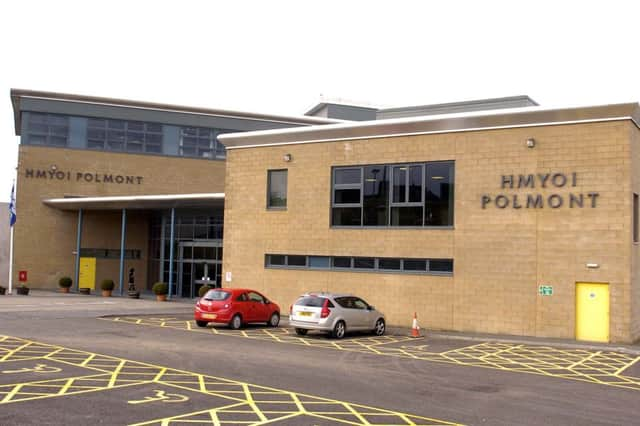Are telephones in cells a viable way to reduce suicides in Polmont YOI?


Families Outside shared its views following a recent HM Inspectorate of Prisons Scotland (HMIPS) inspection at Polmont Young Offenders Institution.
HMIPS’s inspection report not only states increased family contact actively improves reintegration into the community post-release, but it could also help reduce the instances of self-harm and suicide across the prison estate which have been increasing at an alarming rate.
Advertisement
Hide AdAdvertisement
Hide AdThe report stated family contact is “one of the most important areas where actions can be taken to moderate vulnerability and help manage the risk of self-inflicted death”.
HM Chief Inspector of Prisons for Scotland, Wendy Sinclair-Gieben, sets out a number of recommendations to develop new facilities that would give people in prison more access to family contact.
She said: “Outwith Scotland, in-cell telephony has had a demonstrable effect in reducing self-harm; it allows victims to speak to family/friends and self-help and advice lines in private and outwith normal hours.
“HMIPS recommend the Scottish Government and the SPS introduce this facility in HMP YOI Polmont to help support prisoners who feel vulnerable.”
Advertisement
Hide AdAdvertisement
Hide AdIn December 2018, a report from Independent think tank Reform Scotland stated that In-cell telephony would “help prisoners’ rehabilitation.”
At the time the Scottish Prison Service (SPS) said it had no current plans to introduce them, despite previous calls for in-cell phones in Scotland made by Colin McConnell, Chief Executive of SPS, in 2013.
Families Outside chief executive Nancy Loucks said: “Research shows by creating stronger ties with families, people in prison are up to six times less likely to reoffend. This latest recommendation from the HMIPS to introduce in cell phones is incredibly welcome, as it allows people in prison to have more confidential and meaningful contact with their families.
“If this recommendation is implemented, it will have a profound impact on the mental health of people in prison as well as giving families some much needed assurance. This report from HMIPS has uncovered a great number of issues at HMP YOI Polmont, most of which can be addressed by properly engaging with families.
Advertisement
Hide AdAdvertisement
Hide Ad“Families are well-placed to know someone’s normal patterns of behaviour, to identify triggers, and to recognise when something is wrong. They are therefore crucial partners in the prevention of self-harm and suicide.
“The SPS needs to ensure they liaise closely with families, consulting with them regarding their loved one’s health, and working with third sector partners to provide the best possible support for people in their care.”
In October last year the parents of a vulnerable student who took her own life in Polmont after being subjected to bullying and “targeted” strip searches called on justice minister Humza Yousaf to bring about “radical reform” of the prison service.
Katie Allan’s family said she was “brutalised” and “tormented” by inmates and staff, leading her to commit suicide on June 4, 2018 – just three months into a 16 month sentence.
Advertisement
Hide AdAdvertisement
Hide AdThe 21-year-old was sentenced at Paisley Sheriff Court in March after pleading guilty to driving more than four times over the legal alcohol limit last August and causing serious injury to a teenager she struck with her car.
Her parents, Linda and Stuart Allan claimed the Scottish Prison Service failed in its duty of care to their daughter, and called for a review of how female offenders are treated in custody and the provision of mental health services in prison.